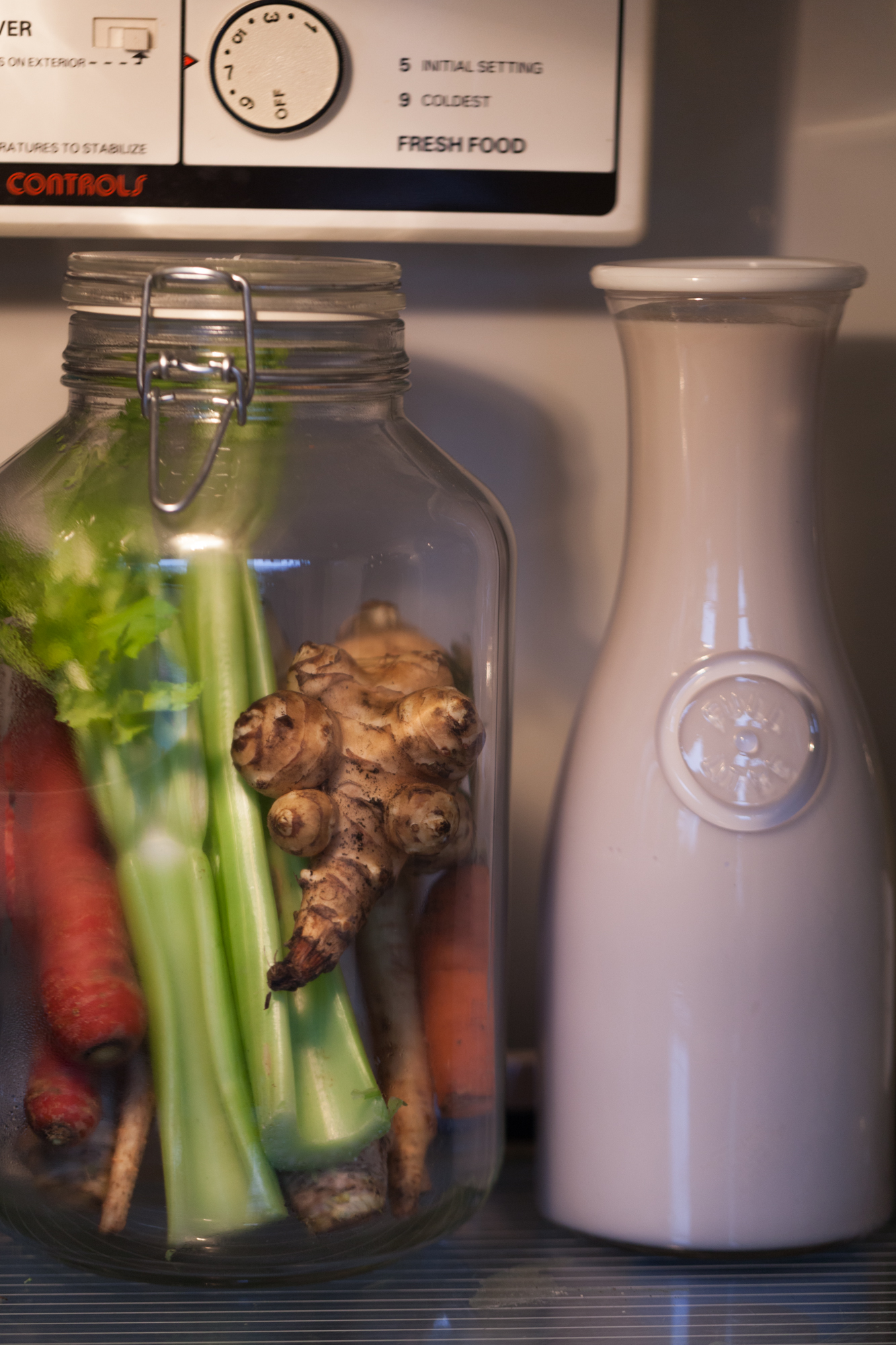Working for the better part of two years with a farm-to-fridge grocery delivery service brought me closer to what it means to have fresh food.
As soon as a fruit or vegetable is picked, it begins to lose valuable nutrients. Different fruits and vegetables also lose their nutrients at different rates—and of course their storage conditions have an impact too. Researchers at Penn State studied the effects of storage on the nutrient content of fresh spinach, for example. They found that spinach stored at cooler temperatures retained more nutrients than spinach in warmer temperatures. However, even at 39°F, the spinach only retained 53 percent of its folate after eight days. This is why it's especially beneficial to buy fresh and eat fresh. Or even better yet—grow it and pick it yourself!
Sometimes it's not feasible to eat all your fresh food in one day, which means you may need to store your fruits and veggies. One of the more effective ways that I do it in my home is by sealing some vegetables, like carrots, celery, parsnips and others in a container with some FreshPaper by Fenugreen. Different fruits and vegetables, however, prefer different conditions. For instance, I primarily keep my apples in a brown bag in their own crisper, since ethanol off-gassing from apples can ripen other fruit (putting an apple with an unripened avocado on your countertop is actually a great way to ripen the avocado!). But fruits and veggies, like tomatoes and potatoes, never really want to be in the refrigerator, so I keep them in less lit location on my countertop.
Certain vegetables benefit from being in closed containers with some Fresh Paper.
Properly storing fruits and vegetables will keep them fresher for longer, but storing any fruit for longer will not necessarily mean it'll retain its nutrients.
Nutrient sensitivities
It will benefit you to keep your vegetables and fruits stored properly because you'll likely be able to retain more nutrients. Here are examples of nutrient sensitivities:
Sensitive to air, light and heat
- Vitamin A
- Vitamin C
- Vitamin D
- Folic Acid
- Carotenes
Sensitive to light and heat
- Vitamin B-6
- Riboflavin
Sensitive to air and heat
- Thiamin
10 tips for fruit and vegetable storage
- Cut the tops off of root vegetables, like carrots, parsnips, parsley root, turnips, radishes and beets. The tops can draw moisture from the roots. If you don't want to waste the tops, then wash them off thoroughly and use them for soup stocks, or in the case of beets, sauté the greens with a little olive oil and salt. Root vegetables can be stored in an open or closed container with some moisture. Wrapping them in a damp cloth or adding a FreshPaper strip will help.
- Potatoes, sweet potatoes, winter squash, garlic and onions should be stored in a cool, dark place in your kitchen. I like to keep mine shielded from light on my countertop.
- Eggplant, peppers, and cabbage prefer to be loose in a crisper.
- Spinach and arugula prefer to be dry and loose in an open container in the crisper.
- Kale doesn't mind to be dry and loose in an open container, or in a closed one. If it has a rubber band around it, then remove it. If it's looking limp, you can stick it's base in some cool water and let it crisp up again.
- Asparagus, fennel and celery like to be stored upright in a shallow plate of water, and they don't need to be refrigerated. Kale, collard, and chard can also be stored this way, although I prefer to refrigerate them.
- Greens like lettuces and herbs will need to be stored in an airtight container. Bands should be removed and a damp cloth will help keep their freshness.
- I store my lemons and limes in a separate bowl in the refrigerator and they often last for a month.
- Bananas I store on the countertop in my fruit bowl. If you buy green bananas, leave them connected on the stem because they'll ripen faster.
- If peaches, nectarines and apricots are ripe, then they can be stored in the refrigerator. 🌿


